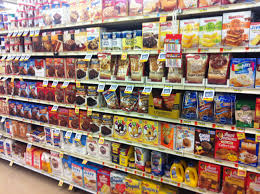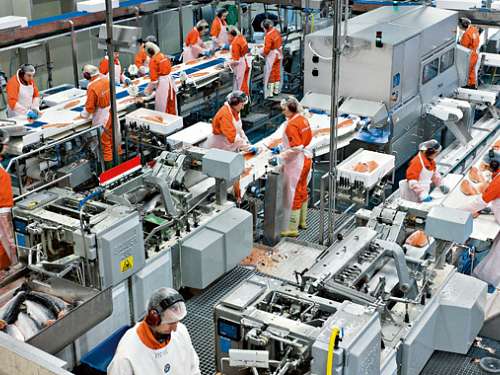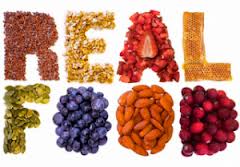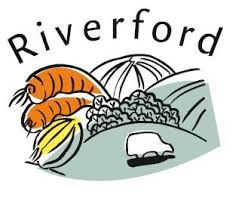Processed Foods
Post details
Posted on 20th November 2014
Ridding your diet of processed foods and thus eliminating as many unnecessary chemicals and food additives from what you eat is probably the most effective and simplest step you can take towards a healthier lifestyle and improved wellbeing. The benefits are endless but most noticeably include increased vitality, improved immune system, enhanced skin condition, better digestion, more energy, more fat loss and often lowered cholesterol levels.

Processed foods are everywhere nowadays ! In a well known large supermarket I recently visited I counted 42 aisles of food products. I noticed that of these 42 aisles there were 6 aisles that had fresh fruit, fresh vegetables, fresh meat and fresh seafood meaning the remaining 36 aisles (85%) contained only packaged, often pre-cooked (ready to eat) processed foods ! We don't really stand much of a chance when it comes to staying healthy and vital when odds like these are so stacked against us !
So what's wrong with processed foods and what exactly is 'processing' ?
Most processed foods, as the name would suggest, are foods that have been through some form of process (most probably in a mass production factory) that generally prolongs the shelf life of a product or makes life easier for the consumer by preparing the food all ready to eat or even makes the product more appealing to the consumer by improving the appearance, the taste, the feel or even the smell of the food !

Often processing involves putting certain additives into the food such as preservatives, sweeteners, flavouring, stabilisers, emulsifiers and colouring. Take a look in your cupboards or refrigerator and take out a packaged or boxed item and read the ingredients. Notice how many of the ingredients are difficult to pronounce and sound more like something you'd find in a beginners chemistry kit than something you'd actually want to eat. Some examples are: aspartame, monosodium glutamate, high fructose corn syrup, E-numbers, sulphates, nitrites, nitrates, soya lecithin, butylated hydroxyanisole, potassium bromate and so on and so on... Just in case you were wondering, there are around 3000-5000 internationally recognised chemicals and food additives used in our food supply today. Include chemicals that are used in the ground or soil in food production and this number can rise to somewhere between 10,000 and 15,000 chemicals ! You may find some packaged foods that only contain one or two 'strange-looking' ingredients but don't be fooled. Some ingredients are generally regarded as safe (GRAS) and therefore are not required by law to be listed if in small quantities and instead can simply be listed as 'artificial flavour' or 'artificial colouring'. Rest assured that most of these are also unpronounceable chemicals !
It all seems to me that the majority of food manufacturers are running a huge trial experiment and unfortunately we, as consumers, are the guinea pigs because additives and chemicals are only removed from the GRAS list after reports accumulate demonstrating their health-damaging effects. Check out a book entitled "Food Additives, A Shoppers Guide To What's Safe and What's not" by Christine Hoza Farlow to learn some of the devastating effects on your health that some of these additives and chemicals can cause. Some foods can be completely void of nutrients and simply contain nothing but chemicals. Consider the next time you ask for a strawberry milkshake from a well-known fast food restaurant that the strawberry flavour is nothing more than 60, completely unpronounceable chemicals. Not a single strawberry ! It's not food and has zero nutritional value. Also be aware that food manufacturers are experts at tricking us into believing that certain foods are good for you when in fact they are nothing more than toxic ! Be careful of labels claiming that an additive such as flavouring is 'natural'. It doesn't necessarily mean that it is good for you. After all, alcohol, tobacco, marijuana and cocaine are all natural but none of them are good for you !

The main problem with processed foods is the addition of these chemicals which are often completely alien to the human digestive system. Most processed foods actually cost the body more energy and therefore vital nutrients to digest, absorb and eliminate them than they actually deliver and they can significantly damage your gut wall lining, killing good bacteria and encouraging the bad to flourish. Furthermore, processes like pasteurisation which can remove any harmful bacteria from food products such as dairy actually tends to destroy all the important enzymes which are essential in order to be able to absorb, breakdown and utilise any nutrients that remain in the food itself and therefore completely negates the majority of positive effects that food may have or had to offer ! Did you know that in milk there is an enzyme known as lactase which is destroyed during the pasteurisation process. This enzyme, lactase, is essential to be able to break down the sugar found in milk which is known as lactose. Now consider the rise in awareness of lactose intolerance over, say, the last 50 years. Pasteurisation is not simply limited to the sanitisation of dairy products. The process tends to increase shelf life of others products such as fruit juice but still destroys the essential enzymes that allow absorption of the vitamins and minerals usually readily available in something like orange juice.
When digestion is compromised it's your poor liver that has to deal with all these chemicals and when the liver becomes overworked, those chemicals and additives can end up in your bloodstream and then they have full access to every cell in the body consequently taxing your organs of detoxification such as your lungs, your kidneys and your skin. This can lead to numerous unpleasant symptoms and health issues such as weight gain, skin disorders, digestive issues and potentially auto-immune diseases ! Another problem is mass produced, commercially farmed produce. Due to the increased demand for more food to feed our ever-growing world population, farming techniques are changing. The introduction of the use of chemical fertilisers, pesticides, fungicides and herbicides during the farming process just increases the number of chemical residues found in our food supply. I will talk about this more in a future article but for now just be aware that the majority of foods grown commercially and not organically have large numbers of chemicals that further tax our digestive and detoxification systems and ultimately cost us more nutrients than they actually provide us with !
Zoe Harcombe - processed foods Listen to what Uk based, world renowned nutrition expert Zoe Harcombe has to say about processed foods and wholefoods

10 Tips to help you avoid chemicals and additives in your food
- Avoid the four white devils: white milk, white flour products, white sugar and white table salt (sodium chloride). Choose organic, unprocessed or minimally processed alternatives like Celtic Sea Salt for example. In general, white foods displace REAL foods !
http://www.waterbenefitshealth.com/celtic-sea-salt.html
-
If you can't pronounce a word on the label - don't eat it or drink it ! Use a food additives dictionary to determine if listed additives are safe; the dangerous ones usually aren't listed, but are usually present in products with tricky words listed !
-
If it wasn't here 10,000 years ago, don't eat it or drink it ! It is probably a modern psuedo-food that will displace the real food your body needs !
-
Avoid all pasteurised fruit juices. Essentially they are dead sugar water. Be careful with fruit juices in general because of the high sugar content, know your body's needs !
-
The longer a food lasts on the shelf, the more dangerous it is likely to be.
• If irradiated, don't eat it !
• If pasteurised, don't eat or drink it !
• if packaged in plastics, the food will absorb dangerous chemicals
- Choose produce and meats in this priority order:
- Certified organic produce
- Organic produce
- Locally farmed produce
- Commercially farmed produce (hormone free)
- Commercially farmed produce
http://www.riverford.co.uk/

- Drink 0.033 litres of pure filtered water (like Evian or Highland Spring) for each Kg of bodyweight
• Store or buy in glass if possible; choose the top brands because they sell faster and don't sit in plastic as long !
• Adding a pinch of unprocessed sea salt to a bottle of water can provide the needed minerals and electrolytes. Celtic and New Zealand sea salts have been found to have the lowest mercury levels
-
Follow the 80:20 rule. If you eat correctly, live healthily and look after your body 80% of the time, your body can generally look after you for the remaining 20% of the time. You don't need to be rigid, just intelligent !
-
Always eat right for your unique, individual metabolic needs; get Metabolic Typed to discover which nutrients your body truly requires to function optimally. Following preconceived diet guidelines diminishes participation in a relationship with your body ! Know your body and give it what it wants !
-
Respect food as vital life-force and Just Eat Real Food ** It simply is NOT a "fuel to bargain shop for" !**
By Duncan Edwards Director & Holistic Health Coach Bodyguards Fitness Service Ltd
Back to blog listingBook your session now
Call us or send us a message to book a session at BodyGuards.
Book nowMore blog posts
-
Single Leg Glute Bridge
Posted on 4th October 2020
Benefits of the single leg glute bridge
-
Plank Plate Presses
Posted on 2nd October 2020
Combine core activation and shoulder stabilisation in one movement
-
Elevated Heels for the Romanian Deadlift
Posted on 30th September 2020
Elevating your heels will alter the emphasis on key muscles when performing this exercise
